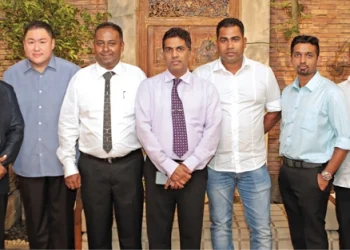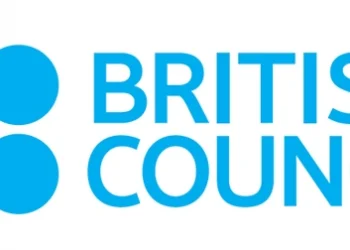
Ceylon Tobacco Company (CTC) has been in the country for more than 100 years. CTC has continuously supported agricultural communities and businesses in Sri Lanka thereby uplifting the lives of people in the societies it operates in. The single largest contributor of tax revenue to the Government of Sri Lanka, CTC is often impacted by ad hoc policies and excise increases, which enable the unregulated to venture forward with greater momentum. Michael Koest, Managing Director and CEO, speaks about the performance of the company as it moves forward as a highly regulated entity, finding strength in its international background and overcoming challenges that are thrown in its path.
By Udeshi Amarasinghe and Keshini de Silva
Photography Mahesh Bandara and Menaka Aravinda
Can you tell us about the performance of CTC during the past year?
We recorded a solid year for the Company, especially after the radical tax hike in Q4 of 2016. In that sense we are extremely happy. The sad thing is that the government revenue growth engine is broken and for the first time in history, the revenue earned by the Government has been negatively impacted by the tax increase. CTC’s volume was equally impacted. The 43 per cent price increase we experienced due to an excise hike in October followed by the introduction of 15 per cent VAT in November 2016, led to a significant dip in the volumes of legal cigarettes in Sri Lanka. However, we successfully delivered on all other metrics and delivered a solid bottom line for CTC, a testament to the extraordinary efforts of all CTC employees and our trade partners to win against all odds.
CTC is the highest contributor to the country’s revenue; can you elaborate on this?
We are the highest contributor, but we are not sure whether we will be that forever. I say this because, for the first time in history, government revenue from the legal cigarette industry did not meet the potential – in 2017 GOSL stood to earn 125 billion rupees in tobacco taxes, but only 100 billion rupees materialised. British American Tobacco Company (BAT), of which we are a subsidiary, has been in business for 120 years, and operates in 180 countries worldwide, therefore with such a vast experience we knew very well what would happen after such a drastic price increase. We warned the Government and explained upfront how excessive the price increase was and that it would push consumers away from legal tobacco products towards smuggled products. Once again, our prediction was accurate, this is exactly what happened. Yes, we are the highest tax payer, historically increasing, on average, 20 per cent year on year. But for the first time, in 2017, government revenue fell short of what was expected. Without the price increase in 2016, the Government would have earned 40 billion rupees in additional revenue from tobacco.
The historical tax revenue growth of 20 per cent has declined to zero growth and it is expected to remain flat in 2018. Not only could the Government have earned 15 billion rupees more in 2016 and 25 billion rupees more in 2017, they could have had 20 per cent on top of the numbers for the years to come. It is an alarming development, but we recognise and appreciate the effort of the current Finance Minister to rectify past mistakes to bring the revenue back by not focusing on pricing in the 2018 budget.
What can you tell us about smuggled tobacco in Sri Lanka?
Traditionally, Sri Lanka has had a low incidence of smuggled tobacco. The number we estimated is about two to three per cent. What happened shortly after the price increase in 2016 is that illicit products started flooding the local market – in 2016, about four million smuggled cigarettes were seized, which is in retrospect not a big number but in the first six months of 2017 alone, 40 million illicit cigarettes were seized by law enforcement authorities. On average, only one in ten illicit cigarettes is detected. Therefore, in reality, 400 million illicit cigarettes entered the Sri Lankan market in the first half of 2017. This is a massive figure and clearly defeats the Government’s efforts of curbing tobacco consumption in the country. We estimate that smuggled cigarettes are in the region of 15 per cent of the legal cigarette industry in Sri Lanka, thus causing a revenue loss of about 20 billion rupees for the Government. Needless to say, the public health objective is totally defeated by extreme price hikes. Consumers are switching to cheaper, illegal substitutes, thus paying less for each cigarette and eventually smoking more.
How can we curtail this?
Unfortunately, you can’t, the smuggled incidence will never reduce, it will only grow. The only right measure is not to increase the prices of legal products, which, in all fairness, the Government has done in 2017. Other countries around us have basically shown us that this is the only measure that works. I am on the board of PTC – Pakistan Tobacco Company and, in Pakistan our problem was that we had 30 per cent of illegal tobacco in the market and it was a stable 30 per cent for the last decade. That 30 per cent would have increased to 55 per cent had we done nothing. But thankfully the Pakistani government decided in May 2017, as part of their budget, to reduce the price of legally manufactured cigarettes. As a result, illicit trade decreased dramatically. The only way of addressing the illicit problem, is to narrow the price gap between the legal and illegal products. The illicit obviously is not taxed, so it’s cheap. Cheap means people smoke more, but the Government doesn’t earn any revenue. Therefore, the only way is to reduce the price of the legal products and thereby decrease the earning potential for smugglers. It’s the only way to eradicate this problem. Pakistan has tried this approach and won big, substantially increasing revenue from tobacco. Maybe that is a step the Sri Lankan Government should also consider going forward to address the illicit problem. It is currently at 15 per cent, it’s a growing phenomenon and it cost the country 40 billion rupees in the first 15 months after the price increase, effectively defeating the Government’s public health agenda.
Our Injection Into The Local Economy In 2017 Is 13 Billion Rupees. That Is Because 100 Per Cent Of Our Raw Materials Come From Sri Lanka.
Do you think if the price is reduced it will increase consumption?
No, consumption increases by about two to three per cent per year in Sri Lanka. The only change that is happening is that the volume is shifting from legal products to other unregulated products such as beedi or illegal products such as smuggled cigarettes, which deprives the Government of revenue. The total consumption is not reduced by increasing taxes for CTC.
It is quite a dramatic shift, if you think about beedi, ten years ago, that is in 2007, it used to account for around 20 per cent of the total smoking in Sri Lanka. Today the numbers have increased to 55 per cent. Excise collection on beedi as you know is zero.
CTC has always ensured that it is engaged with agricultural communities, can you talk about this?
We engage in two different ways; one is through our CSR programme, Sustainable Agricultural Development Programme (SADP) and the other is through our direct leaf suppliers, which are all the cigarette tobacco farmers in the country. We have been supporting around 20,000 tobacco farmers for a very long time. Using a forward contracting system, we purchase their full crop at a pre-agreed guaranteed price. We finance their businesses 100 per cent. Therefore, they do not have to spend their own funds to run the business and pay us back after the harvest. Going beyond this, we provide a pension to these farmers once they are no longer able to cultivate and provide scholarship for the higher education of their children. If you think about rural communities, some of these tobacco farmers and our distributors are the highest tax payers in those communities and areas. Banks have opened branches in such places because CTC has enabled the growth of income. Our injection into the local economy in 2017 is 13 billion rupees. That is because 100 per cent of our raw materials come from Sri Lanka.
British American Tobacco Always Brings In Diverse Experience On How To Run A Business. We Follow World Class Governance And Control Mechanisms.
Speaking of CSR, our flagship programme SADP is slightly different, we select villages and families that are underprivileged and support them to be self-sufficient in meeting their food requirement and nutrition. We also help them to produce in excess so that they can earn an income by selling the fresh produce to the local market. It is a very intense programme; we identify a piece of land and provide them with seeds, tools and teach them how to cultivate. We are with them for the duration of the project period, which is three years and once they have graduated and we feel that they can operate independently, we exit the programme. Here again the impact is massive. We have supported the livelihoods of over 80,000 beneficiaries through SADP.
Can you describe the crop to consumer supply chain?
We refer to our supply chain as a “Crop to Consumer” or “Seed to Smoke” model. We have two tobacco growing seasons, Yala, which starts around April, and Maha that starts in September. We plant the seeds in seed beds and allow these to grow for about six weeks. Thereafter, these ‘seedlings’ are replanted by farmers in their fields. The crop is then harvested and cured and sold to us. From there the leaf is transported to our Green Leaf Threshing Plant, in Kandy, where the leaf is processed for production in Colombo.
In Colombo we have the Primary Manufacturing Department, where the rough-cut tobacco is further processed into smaller particles and transferred to the Secondary Manufacturing Department, where cigarettes are manufactured, packed and sent to the market via 16 distributors. We cover around 80,000 retail outlets, which largely depend on tobacco to do business. These are general trade stores, the traditional way-side shop in Sri Lanka, which sells tobacco and essential commodities. However, tobacco is a big part of their business, because our model again is to facilitate their trading. We usually supply the product on credit and it is only once the stock is sold that they pay us. This in turn means that the shop owner has free cash to purchase products in other categories and they can operate the business without too much of a financial burden. It is an important component of the value chain and as I said it is part of the 13 billion rupees that we inject into the local economy. The 80,000 tobacco traders are obviously a part of that value chain. All in all, if you look at direct employment at CTC, it is very small, only 270 people. But we have 20,000 tobacco farmers, 80,000 retailers and over 500 distributor staff or sales reps that work for our distributors and if we look at the total number of livelihoods the CTC sustains in the country, we are talking about a number, which is close to 300,000.
Traditionally, this has been our model and CTC is one of the few ‘Crop to Consumer’ supply chains in BAT. Unfortunately, not every country has the climate to grow tobacco, so in those parts of the world, BAT companies have to import the tobacco required for local manufacture. If it is a smaller market, we do not necessarily manufacture locally but supply the market via some bigger hubs. For Sri Lanka however, given the development stage of the country, the right model is to continue sourcing 100 per cent of our raw material from within and injecting that 13 billion rupees to the local value chain.
We pay 500 rupees per kilo of tobacco purchased from the farmers who occupy less than 0.1 per cent of arable lands in the country. It is a very good income and certainly enables development for rural communities.
As a member of British American Tobacco, can you talk about the importance of being part of an international group?
British American Tobacco always brings in diverse experience on how to run a business. We follow world class governance and control mechanisms. Just to put things into perspective, all the laws we comply with are both UK and US laws, which are significantly more stringent than Sri Lankans laws. It terms of governance, controls and processes I do not think you will find many other companies that are run as well as CTC. In that sense, when it comes to business sustainability and risk management, to a larger extent, we are very well equipped.
We Have Quite A Few Plans In Our Leaf Categories As Well. We Want To Increase The Profitability Of Our Tobacco Farmers By Introducing New Technologies.
There is also a benefit in terms of HR development. As part of our HR programmes, we invite teams from other multinationals and share our best practices without exception. We create good professionals for the country, which other companies benefit from. It is similar to the tourism dollar that is spent, which has a multiplier effect in the country. CTC is an amazing company with competent and hard-working people. Certainly, you do need unique attributes if you want to be successful at CTC. But there are many successful people who eventually have decided to change their career and you will find them in various other industries in the country, uplifting the standards wherever they work.
Future plans and strategies?
Our plans remain unchanged. I came from BAT in Korea in 2016. I was able to make significant changes while I was there. Similarly, I have made substantial changes in Sri Lanka as well. There were many things that we were doing well, but other areas which needed to be improved. An area that we focused on was to energise the organisation, another was to develop plans, not for the next ten to 12 months, but for the next ten years. We have grouped these plans as six ‘game changers’, developed anticipating future challenges and threats to the business.
We have an employee satisfaction survey called Your Voice for which we received a record score in 2017, not only in the history of the CTC, but also the best in the Asia Pacific and BAT worldwide. I am extremely proud of that. The organisation has the Executive Committee, but we also have a second layer, which is the extended leadership team. There is a great amount of energy, passion, hard work, world class people and processes that go into making our business a success. We do have, on the product front, a few interesting innovations that we are planning to launch soon. But we need to create the right conditions to make sure those will be successful. As you know, consumers are continuously evolving. We have a whole range of products that we are planning to put into the market. However, this not an easy thing to do in Sri Lanka, as we are accused of encouraging smoking. Just to be clear: We are not in the business of encouraging people to smoke. Our business is to ensure that we provide satisfying products to the people who have decided to smoke.
We have quite a few plans in our leaf categories as well. We want to increase the profitability of our tobacco farmers by introducing new technologies. At the moment, we use the usual barns in Sri Lanka and we have now piloted what we call a ‘loose leaf barn’. Currently we require manpower to string the tobacco leaf for the curing process. However, with the new system, the advantage is that we eliminate that process, thus reducing cost of production and increasing the revenue of our farmers. That is one programme we definitely want to pursue in 2018.
Your experience in Sri Lanka?
Sri Lanka not only has one of the most stringently regulated environments, but you also have one of the least predictable operating environments in the world. Literally, I come to office in the morning, read the newspapers and find out that the price has gone up by 43 per cent, which is a very strange way of operating. As a company, we can always improve although within CTC we are doing a world class job. What prevents us from growing is really the external environment, which is volatile and highly unpredictable. There is a misconception that when legal tobacco prices increase, smoking goes down, thus improving public health. Smoking is increasing in this country, on average three per cent a year. Therefore, the question for the Government is whether they want people to use a regulated product and earn money or watch the increase in consumption without extracting any value for the Government.
We have very talented people employed at CTC and we provide them opportunities abroad. We have exported our talents to Malaysia, Hong Kong, Japan and UK as well as many other places around the world. But we have to replace these people, which is a difficult task. Therefore, Sri Lanka needs to focus on the quality of education. There is of course a balance, we are not sending all our talent abroad, and there are many at CTC. We definitely give everyone international career opportunities as BAT operates in 180 countries and none of these countries are closed as an opportunity to our staff. We like to export talent.
It Terms Of My Background And Career; I Do Not Have A Typical Trajectory Because After My First Year Of University I Decided To Become A Professional Wind Surfer.
The weather can also be another challenge. There are natural causes such as droughts and floods that have occurred over the years that we cannot control. As a result, we have had to import tobacco, it is not something we like to do but it was unavoidable. The floods in May 2016, basically destroyed 40 per cent of our crop and was not recoverable because from seed to sprout there is a lead time and you cannot plant at any time of the year. We had to, as result, import tobacco at the end of 2016 or else we would not have had tobacco to produce cigarettes and provide the Government revenue. You know when you work in a tropical climate, these natural disasters can happen unfortunately, it is no one’s fault.
Can you tell us about yourself?
It terms of my background and career; I do not have a typical trajectory because after my first year of University, I decided to become a professional wind surfer. I was travelling around the world for five years on a wind surfing world tour. Eventually, I realised that I do not want to end up my career as a wind surfing teacher. So, I decided to finish my studies and graduated in Philosophy, Geography and German Literature. I chose those subjects because they are interesting, and I really wanted to do things differently, always, rather than doing what most other students do.
After completing my studies, my first job was in a Swiss Dairy company where I headed the consumer research department. My second job was at British American Tobacco, which I joined in 2001, in Switzerland in the Global Duty-Free business. In my 16 years at BAT, I have been employed in about ten positions, mostly commercial roles, but also strategy and planning. I was previously the Commercial Director in the Netherlands as well as South Korea. That in short is my trajectory from a not so conventional start to now in this current role. BAT is about diversity and a great fit for my personal preference for unconventional thinking and entrepreneurship.
My experience in Sri Lanka, is that it takes some time to adapt. On the home front because you want to make sure that the wife and children are happy. Coming from a country like Switzerland, where even when the train is late by one minute they announce and apologise, it takes time to adapt to living in Sri Lanka. From a business perspective, you do realise the culture is different and that you have to adapt to this. My character would be to get many things done overnight, but here I have to be a little patient. I have to be understanding and give people time and space. Those are some of the fundamental differences you encounter. We have made great progress. CTC employees are fully utilising their room to manoeuvre, the accountability and decision making, which I am giving. I no longer have 100 small things coming to me on a daily basis to decide on. I pass accountability to the next level. At BAT, staff have to take responsibility early on in their career. Therefore, I make my life easier in a certain way and get involved only in the bigger things. And for the rest I really let the business manage the business. I am not Sri Lankan therefore the staff here know a zillion times better how to do things in this country. It is not my way, it is their way and I have to adapt. That is the biggest learning, once you understand that manner of operating in Sri Lanka, it becomes relatively easy and there is less drama.






